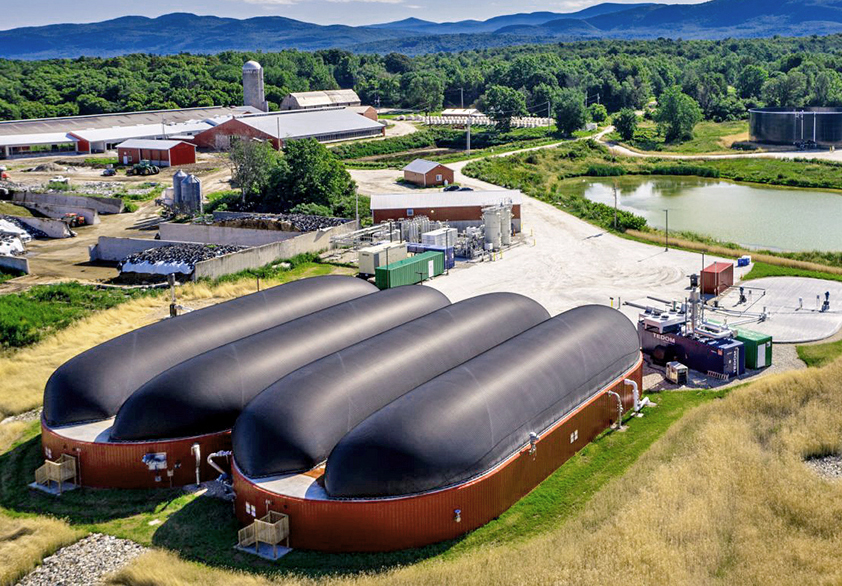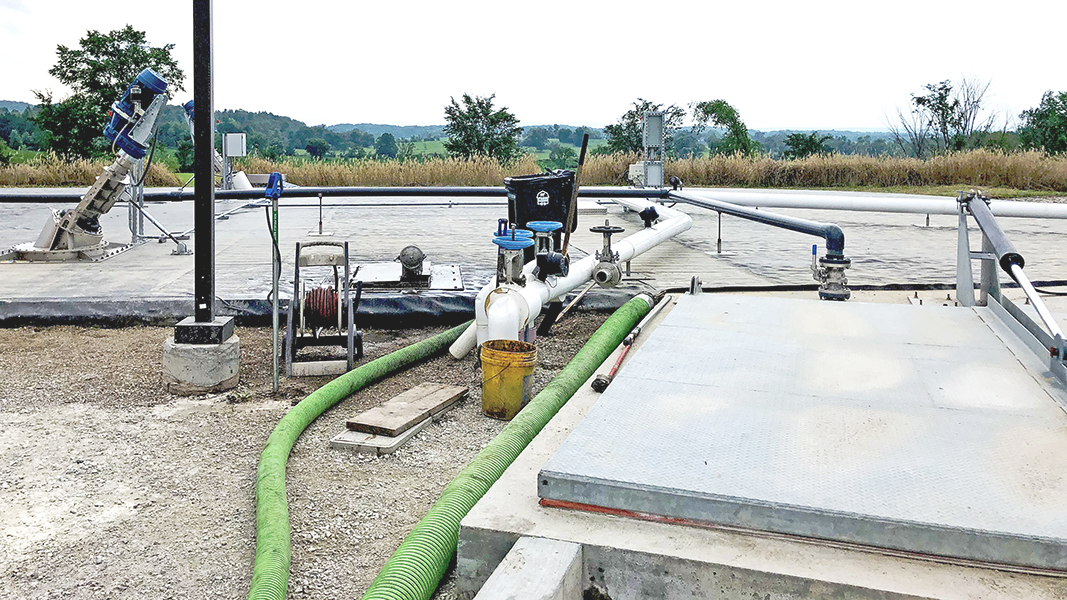
The University of Vermont is receiving EPA funding to assess current capacity at digesters in the state to accept food wastes. Goodrich Family Farm (above) in Salisbury is an example of a Vermont digester receiving food waste (hydrolysis tank that blends food waste prior to AD shown in feature photo at top). Aerial photo courtesy of Vanguard Renewables
The U.S. Environmental Protection Agency (EPA) announced the selection of 11 organizations expected to receive a total of approximately $2 million in funding to divert food waste from landfills by expanding anaerobic digester (AD) capacity nationwide. EPA says it is prioritizing environmental justice by ensuring nearly half of the funds announced were awarded to projects or recipients located in underserved communities. “Specifically, EPA considered the effects of this program on people of color, low-income, tribal, and indigenous populations, and other vulnerable populations, such as the elderly and children,” noted the press release.
Each selected organization will receive a range of approximately $150,000 to $200,000 over a two-year period. The organizations selected for AD project funding are:
- District of Columbia Department of Public Works (Washington, D.C.): Establish a training and certification program for commercial food waste generators to set up successful source separated organics programs to divert food waste to ADs for processing.
- Food Lifeline (Seattle, WA): Develop an AD demonstration project that introduces the community of South Park to alternative energy production through hands-on, culturally, and linguistically relevant engagement and education opportunities.
- Georgia Southern University Research and Services Foundation (Statesboro, GA): Conduct a feasibility study to advance the understanding of how existing AD capacity at pulp and paper mills can be sustainably leveraged for processing food waste from university campuses.
- Monterey One Water (Monterey County, CA): Conduct a feasibility study to evaluate conversion of existing digesters at its wastewater treatment facility to codigest biosolids with food and other organic wastes from the area.
- Northeast Waste Management Officials’ Association (Boston, MA): Develop environmental justice engagement and regulatory compliance guidance and training to support states seeking to increase food waste diversion rates through AD utilization.
- Ohio University (Athens County, OH): Study and quantify potential for waste diversion at microbrewery brewpub businesses and demonstrate an AD model system scaled for that sector.
- San Luis Valley Local Foods Coalition (Mosca, CO): Install an AD system to process food and organic waste to demonstrate its technological feasibility and cost-effectiveness in Colorado’s rural, high-alpine San Luis Valley region.
- University of Iowa (Iowa City, IA): Conduct a project using computational modeling to demonstrate optimum conditions for biogas production while minimizing digester issues.
- University of Puerto Rico Medical Sciences Campus (Cataño, PR): Implement project to empower and educate the local community in utilizing AD for organic material management through a seminar series and small pilot facility to demonstrate benefits.
- University of Vermont (Burlington, VT): Perform study to assess current capacity at digesters to accept food wastes; the potential impacts of food waste codigestion on biogas production; and the potential impacts of codigestion on nutrients and microplastics in digestate.
- Yurok Tribe (Klamath, CA): Establish AD pilot demonstration project to divert food waste generated on and near the Yurok Indian Reservation, beginning with a local elementary school.












